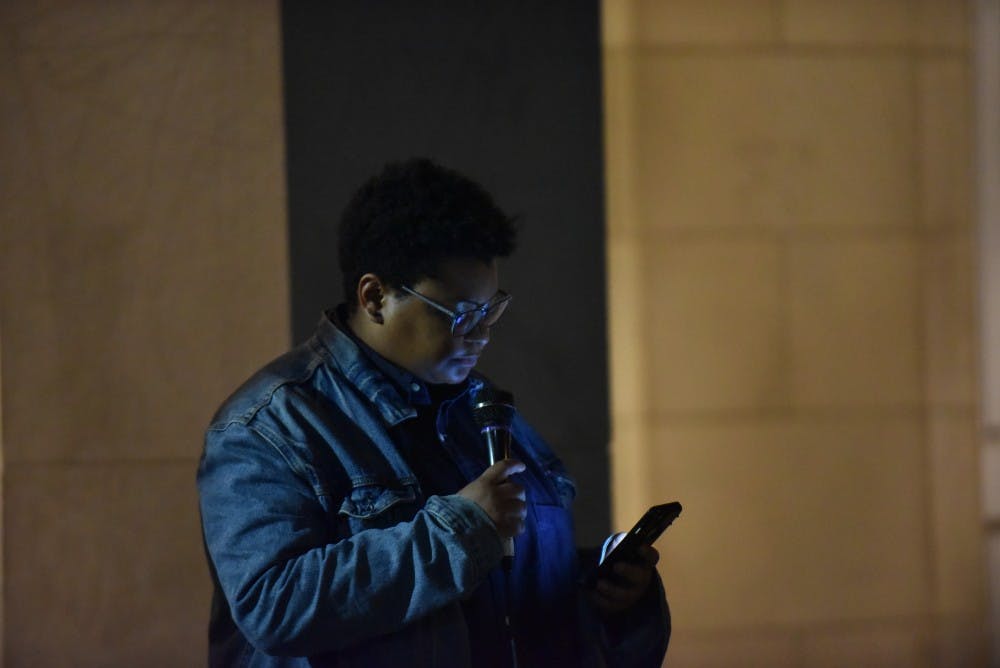Following the trial of anti-Silent Sam activist Maya Little Monday afternoon, activists gathered at the Peace and Justice Plaza at 7 p.m. for a "teach-in" on racism and social justice.
The session dealt with issues such as institutional white supremacy and the failings of North Carolina’s criminal justice system, especially to members of minority groups.
Earlier in the day at the Orange County Courthouse, Little was found guilty of defacing a public statue or monument. She will not have to pay court costs or restitution. She had been charged with the misdemeanor after she poured red paint and her own blood on Silent Sam on April 30.
“I don’t see a courtroom as a space of justice, and I don’t see the Orange County Courthouse as a space of justice,” Little said to the crowd at the teach-in.
Little introduced the event by reading the statement she had given in court earlier that day.
“When a white supremacist statue is protected by law, demanding dignity is illegal,” Little said. “When a University spends almost $400,000 to silence and conceal dissent, showing the truth is punished.”
Following Little’s statement, activists Myka Johnson and Glo Merriweather also spoke. Both Johnson and Merriweather are part of Charlotte Uprising, an activist organization known for its role in the 2016 protests following the shooting of Keith Lamont Scott in Charlotte, North Carolina.
The two discussed their experiences advocating for racial justice in Charlotte, in addition to addressing the multiple ways in which white supremacy has affected the lives of Black people today.
“When they try to take someone like Maya or myself out of our society, they remove those truths (of the effects of white supremacy),” Merriweather said. “They remove the bodily experience that we had."



